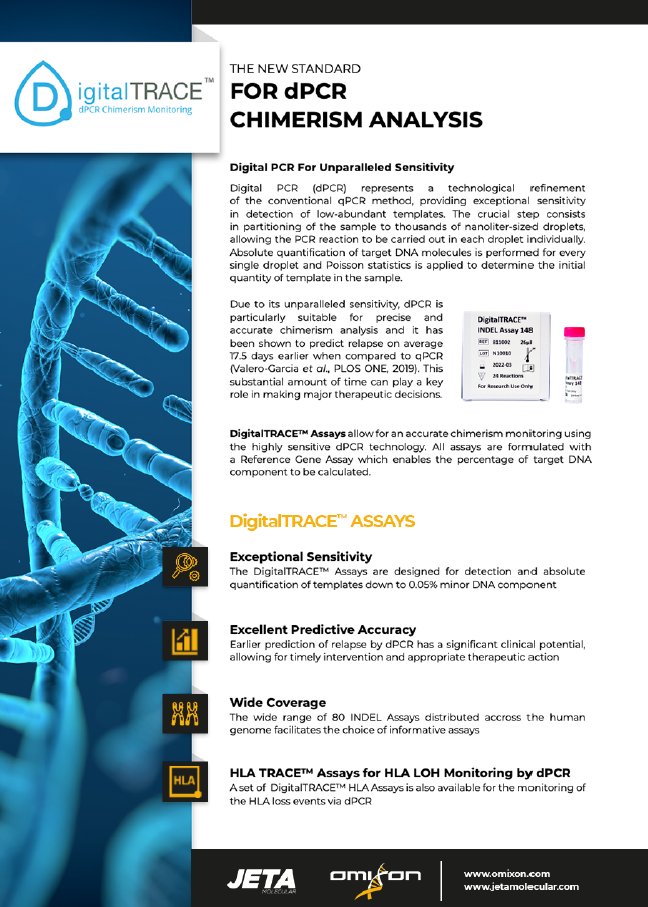ABOUT DIGITALTRACE
Digital PCR For Exceptional Sensitivity
Digital PCR (dPCR) represents a technological refinement of the conventional PCR method, providing exceptional sensitivity in detection of low-abundant templates. The crucial step consists in subdividing of the sample to thousands of nanoliter-sized partitions, allowing the PCR reaction to be carried out in each partition individually. Absolute quantification of target DNA molecules is performed for every single partition and Poisson statistics is applied to determine the initial quantity of template in the sample. This enables rare templates to be detected in spite of excessive amounts of other DNA templates.
DigitalTRACE™ - Absolute Quantification of DNA Chimerism
Due to its unparalleled sensitivity, dPCR is particularly suitable for precise and accurate chimerism analysis and it has recently been shown to predict relapse on average 17.5 days earlier when compared to qPCR (Valero-Garcia et al., PLOS ONE, 2019). This substantial amount of time can play a key role in making major therapeutic decisions.
DigitalTRACE™ Indel Assays allow for an accurate and sensitive chimerism monitoring using the highly precise dPCR technology. All assays are formulated with a Reference Gene (RNase P) Assay which enables the percentage of recipient DNA to be calculated.
A range of DigitalTRACE™ HLA Assays is also available for the monitoring of the HLA loss events via dPCR.






